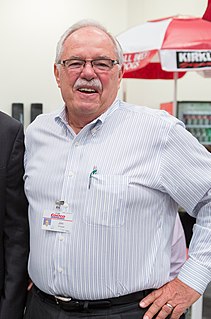A Quote by Andy Murray
I fully understand that not all of the companies will succeed and that there will be losses along the way, but this is very much the norm with early stage investment.
Related Quotes
I am proud of the fact that the U.K. is an open trading country. I welcome inward investment such as that of Nissan, and the takeover of struggling British companies by foreign companies who turn them around, as in the case of Jaguar Land Rover. I also accept that job losses sometimes have to occur to restore failing companies to health.
When you talk with famous scholars, the best thing is to pretend that occasionally you do not quite understand them. If you understand too little, you will be despised; if you understand too much, you will be disliked; if you just fail occasionally to understand them, you will suit each other very well.
The value of market esoterica to the consumer of investment advice is a different story. In my opinion, investment success will not be produced by arcane formulae, computer programs or signals flashed by the price behavior of stocks and markets. Rather an investor will succeed by coupling good business judgment with an ability to insulate his thoughts and behavior from the super-contagious emotions that swirl about the marketplace.
My parents read to me a lot as a kid, and I started writing very early, probably spurred on by Aesop's fables. Then they gave me The Lord of the Rings way too early for me to fully understand what I was reading, which was actually kind of cool. It was almost better - comprehension's overrated when you're reading.





































